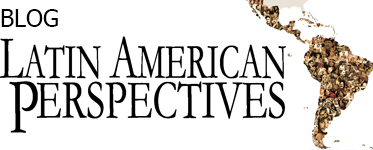Por Rodrigo Yáñez[1] and Daniela García Grandón[2] | Aug. 10, 2020
Por Rodrigo Yáñez[1] and Daniela García Grandón[2]
With the expansion of the COVID-19 the society has experienced a return to history. Although we have never escaped it, it seemed as if the levels of hyper-connection and technological advances had put us in another dimension, that of the end of history, different from all time before. To a certain extent, the contemporary view was more open to the idea of colonizing Mars than to remembering past events such as the epidemics that struck Egypt, Rome or Tenochtitlan.
This distancing from history can be associated with a growing appreciation in recent decades for the narratives of memory. In Latin America, memory has gained particular relevance since the 1980s and 1990s with the imperative to confront the historical traumas of death and horror that many societies did not always want to remember. Memory became a moral value according to which the past had to be made present so that it would never happen again. In this way, the dispute over memory opened up as a space for redefining societies themselves, a narrative effort by individuals to give meaning to the facts [3].
Revisiting the recent past, the long history lost its place. Until suddenly the number of people infected by coronavirus began to multiply and the thousands of cases in China became millions all over the world.
The multiplication of the outbreaks replaced the individual and, from the perspective of memory, faced with the challenge of interpreting such complex facts as those we are witnessing, the experience was not enough. It was necessary, then, to resort again to history to rely on past events that would allow us to interpret what is happening today. Thus, it is not by chance that texts synthesizing the history of epidemics, exposing the challenges of science associated to the emergence of the first vaccines or evaluating the construction of the political agreements that gave rise to public health systems abound in various media.
In illuminating these historical events, north and south American have inevitably returned to one of the founding facts of their history: the conquest of the continent that began with the discovery of the region in 1492. With the arrival of the conquistadors and the germs they carried, a series of epidemics were unleashed which, in the two centuries following the arrival of Christopher Columbus, decimated the continent’s population.
The transmission of diseases became a decisive factor in the conquest and a period of regional history that, although it seems distant, today returns as an echo reminding who are at the base of the population in this continent. Especially when we look at what is happening in the Amazon, where most of the isolated and uncontacted tribes still living in the planet are concentrated.
Faced with the advance of the virus, many of the communities that have been living in practically the same way for five centuries have decided to cut off communication with the border towns of Brazil, Colombia, Ecuador and Peru. From their own experience, they know that, since they have no genetic or immune resistance, the impact of the virus can be catastrophic within their communities.
The story of the contact of deep north and south America with individuals from the Old World is the story of the eternal return, which continues today through the penetration of illegal loggers and miners who permanently enter the lands of the Amazon, as well as with the neo-Pentecostal groups who, evading all restrictions and self-determination of the local communities, enter to evangelize the inhabitants of a territory where is living the majority of the individuals who possess a form of life that is practically extinct on the planet.
In these contacts the transmission of the virus has been lethal. For example, the American group New Tribes Mission, trying to establish contact with the isolated tribes, built an airstrip near the village of a Zo’es tribe in the northern Brazilian Amazon. The result of this event was a reminiscent of the conquest: catastrophic outbreaks of flu, typhus and malaria, which resulted in one in four Zo’s dying between 1982 and 1988[4].
Today, when the virus is spreading in the Amazon, the catastrophe that the transmission of the virus has meant for the first nations seems to return to its initial moment. If the communities that survive there cease to exist, it is not only life that disappears, it is the right to difference and other forms of economy and society, politics, language, sexuality, art and religion that are part of human culture. This is a permanent dilemma in the history that goes from the north to the south of the long American continent, and crosses all the first nations, that with the expansion of this new virus has been installed again in the history and memory of society.
[1] PhD in Sociology, École des Hautes Études en Sciences Sociales (EHESS).
[2] PhD in Sociology, NC State University.
[3] Carlos Peña, El tiempo de la memoria (Santiago de Chile: Taurus, 2019).
[4] Survival International, «Zo’és», 2020, https://www.survival.es/indigenas/zoe.
Posted by LAP Outreach Coordinator at 7:53 AM



